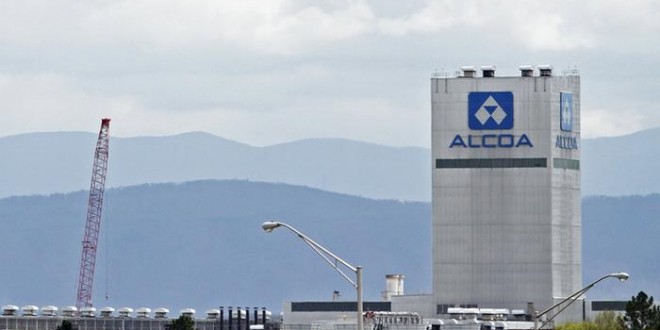Alcoa said on Monday it will split into two companies to separate its struggling aluminum smelting operations from production of lightweight metals for its faster-growing aerospace and automotive business.
Shares of Alcoa, down 43 per cent this year, gained 4.7 per cent to $US9.50 a share in premarket trading.
Alcoa said its upstream company, which will keep the Alcoa name, will include its bauxite-mining, alumina-refining and aluminum-production businesses. The company would have had revenues of $US13.2 billion in the year ended June 30.
The other company, which Alcoa is calling its value-add company, will include its global rolled products, engineered products and solutions, and transportation-and-construction solutions businesses. The company would have had $US14.5 billion in revenue in the year ended June 30.
Alcoa said a big chunk of the company’s revenue will come from the aerospace industry, through market leadership in areas such as jet engine and industrial gas turbine airfoils and aerospace fasteners.
Chief Executive Klaus Kleinfield will lead the value-add company as chairman and CEO, and he will also chair the upstream company initially.
The move comes as Alcoa has struggled with the price for raw aluminium remaining under pressure as China floods the global markets with steel, aluminium and other industrial metals.
The deal is expected to close in the second half of next year.
Alcoa shareholders will own all outstanding shares of both companies. Alcoa said it expects the deal to qualify as a tax-free transaction for shareholders.
Earlier this month, Yahoo Inc’s plan to spin off some $US23 billion worth of shares in Alibaba Group Holding Ltd tax-free was dealt a setback after receiving word that the Internal Revenue Service wouldn’t approve it.
Companies from industrial conglomerate Danaher Corp. to technology giant Hewlett-Packard Co. have announced plans to break up their businesses recently. The trend has been fuelled by the idea that companies with a narrower focus perform better. The moves in many cases have been well received by shareholders — and are sometimes actively sought by them.
Agencies/Canadajournal
 Canada Journal – News of the World Articles and videos to bring you the biggest Canadian news stories from across the country every day
Canada Journal – News of the World Articles and videos to bring you the biggest Canadian news stories from across the country every day



